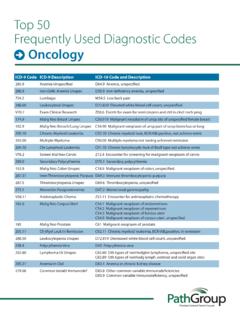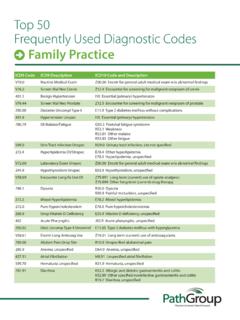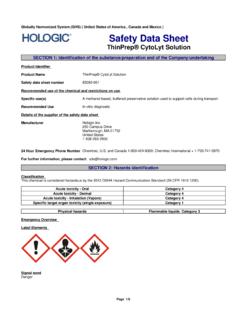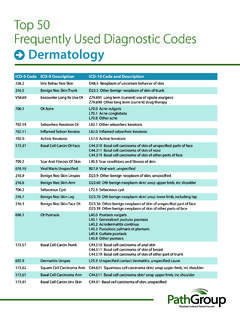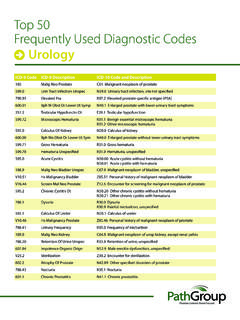Transcription of Positive ASCUS Pap Letter - PathGroup
1 Positive ASCUS Pap Letter Patient Diagnosis: Atypical Squamous Cells of Undetermined Significance (ASC-US) The Pap test is intended to detect cancer and changes that may lead to cancer. The Pap test recently performed by your Doctor has shown some abnormal cell changes of Atypical Squamous Cells of Undetermined Significance ( ASCUS ). This diagnosis does not mean that you have cervical cancer, but you have some mildly abnormal cellular changes. To determine if these results are benign reactive changes or early precancerous changes may require additional testing.
2 Your Pap results will be reviewed by your physician to determine the most appropriate treatment plan for you. Facts about ASCUS : Atypical squamous cells of undetermined significance may be the result of reaction to an inflammatory process, irritation, or hormonal changes. None of these increase your risk for cervical cancer and may or may not require treatment. Atypical squamous cells of undetermined significance are often caused by infection with human papillomavirus (HPV). Persistent genital infection with a high risk type of HPV has been associated with cervical cancer.
3 Your physician may order an additional test on your Pap specimen to look for genetic material (DNA) from HPV. It is important to follow your clinician s recommendations regarding follow-up and treatment of ASCUS . Facts about Cervical Cancer The American Cancer Society predicts that about 12,170 women will be diagnosed with cervical cancer in the in 2012. Risk factors for cervical cancer include, but are not limited to: HPV (high risk) infection, sexual activity at a young age, a history of multiple sexual partners, smoking, and conditions that compromise the immune system, such as HIV infection.
4 The five year survival rate for cervical cancer is greater than 90%. Death from cervical cancer is rare in women younger than 30 years and in women of any age who have regular screenings with the Pap test. Sources for Additional Information American Cancer Society: or 800-227-2345 National Cancer Institute: or 800-4-CANCER WebMD: *The report is intended for patient education and information only. It does not constitute advice, nor should it be taken to suggest or replace professional medical care from your health care provider.
5 Your treatment options may vary, depending upon medical history and current condition. Only your health care provider and you can determine your best option. Provided to you as a service by PathGroup .
